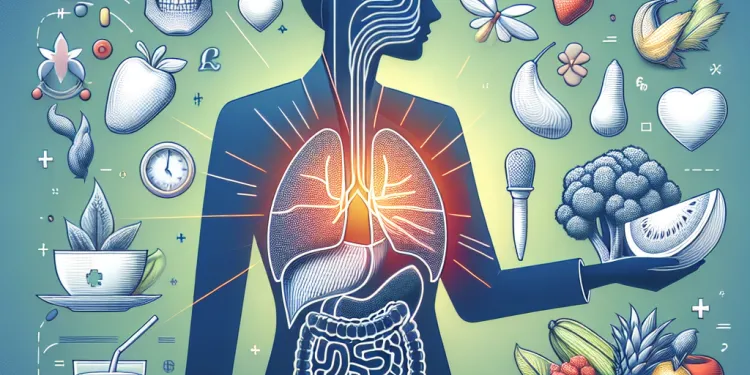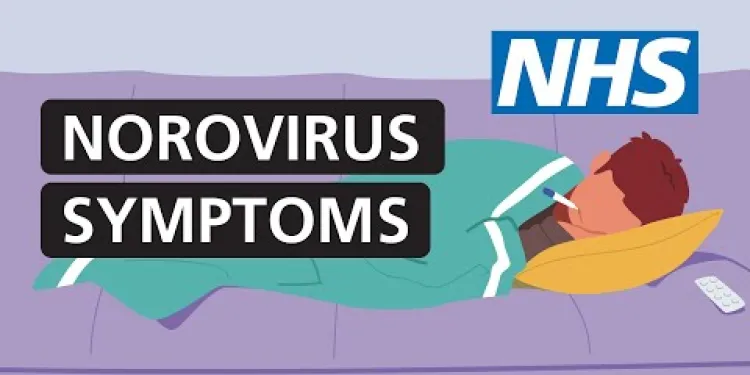
Find A Professional
More Items From Ergsy search
-

What types of nuts can cause allergies?
Relevance: 100%
-

Are nut oils safe for people with nut allergies?
Relevance: 88%
-

Can nut allergies be outgrown?
Relevance: 87%
-

Can tree nuts and peanuts cause cross-reactions?
Relevance: 85%
-

What are the symptoms of a nut allergy?
Relevance: 84%
-

What are Nut Allergies?
Relevance: 83%
-

What is the difference between a nut allergy and intolerance?
Relevance: 83%
-

Can nut allergies develop later in life?
Relevance: 78%
-

What should I do if I think I have a nut allergy?
Relevance: 70%
-

How can nut allergies be managed?
Relevance: 64%
-

How can I prevent cross-contamination with nuts in the kitchen?
Relevance: 56%
-

Is there a cure for nut allergies?
Relevance: 56%
-

What foods should I avoid if I have a nut allergy?
Relevance: 55%
-

How is a nut allergy diagnosed?
Relevance: 54%
-

Is it safe to eat foods labeled as 'may contain nuts'?
Relevance: 47%
-

What should I tell my family and friends about my nut allergy?
Relevance: 41%
-

Is epinephrine the only treatment for severe nut allergy reactions?
Relevance: 39%
-

Can hay fever symptoms mimic other conditions?
Relevance: 38%
-

What are Dairy Allergies?
Relevance: 36%
-

Can diet affect ADHD symptoms?
Relevance: 35%
-

Can diet influence hay fever symptoms?
Relevance: 33%
-

How are food allergies managed in UK schools?
Relevance: 33%
-

What are the symptoms of West Nile Virus?
Relevance: 32%
-

What if I have an egg allergy, can I still get the flu vaccine?
Relevance: 32%
-

What are the common symptoms of hay fever?
Relevance: 32%
-

Is it possible to be allergic to the sun?
Relevance: 32%
-

What are the symptoms of Marburg virus disease?
Relevance: 31%
-

Dealing with Seasonal Allergies
Relevance: 31%
-

Ovarian cancer - signs and symptoms to look out for
Relevance: 30%
-

What are the symptoms of long covid?
Relevance: 30%
-

What are the symptoms of Nipah Virus infection?
Relevance: 29%
-

What is norovirus? (Diarrhoea and vomiting bug) | NHS
Relevance: 29%
-

Worried about signs that could be cancer? Contact your GP practice | NHS
Relevance: 29%
-

Get cancer symptoms checked by your GP | NHS
Relevance: 29%
-

Get cancer symptoms checked by your GP | NHS - BSL version
Relevance: 29%
-

Symptoms of coeliac disease
Relevance: 29%
-

What are the common symptoms of lupus in children?
Relevance: 29%
-

What are the common symptoms of Crohn's disease?
Relevance: 28%
-

What are the symptoms of the bubonic plague?
Relevance: 28%
-

What are the common symptoms of asthma?
Relevance: 28%
Symptoms of a Nut Allergy
Nut allergies are a common type of food allergy and can cause a range of symptoms. It is important for individuals who suspect they have a nut allergy to be aware of these symptoms, as they can vary in severity and occur rapidly after exposure to nuts. The most common nuts that trigger allergies include peanuts, almonds, walnuts, cashews, hazelnuts, and pecans.
Mild to Moderate Symptoms
Initial symptoms of a nut allergy can involve various parts of the body and may include itching or tingling sensations in the mouth. Some individuals may also experience hives, which appear as raised, red, itchy welts on the skin. Additionally, there may be redness or swelling around the face and lips. Nasal symptoms such as a runny or stuffy nose, sneezing, and itchy eyes are also possible. Digestive issues like stomach pain, cramps, nausea, vomiting, and diarrhea may occur as well.
Severe Symptoms and Anaphylaxis
In some cases, nut allergies can lead to a life-threatening reaction known as anaphylaxis. Symptoms of anaphylaxis can develop quickly and require immediate medical attention. They include difficulty breathing due to swelling of the airways, a sudden drop in blood pressure, and a rapid or weak pulse. The individual may also experience loss of consciousness, dizziness, and confusion. Other severe symptoms include severe hives and swelling of the throat, potentially leading to choking. If not treated promptly, anaphylaxis can be fatal.
Delayed Symptoms
While most symptoms of nut allergies occur immediately, some individuals may experience delayed reactions. These can manifest hours after consuming nuts, making it more challenging to identify the food allergen. Delayed symptoms may include a persistent cough, mild skin rashes, or a general feeling of malaise.
Cross-Reactivity
Cross-reactivity may occur among different types of nuts. For example, someone allergic to peanuts might also have a reaction to tree nuts, and vice versa, although they are not the same. The proteins found in different nuts can be similar, causing an allergic reaction even if the person has not directly consumed the specific type of nut previously.
When to Seek Medical Help
If you suspect you or someone else is experiencing symptoms of a nut allergy, it is crucial to seek medical attention immediately, especially if symptoms suggest anaphylaxis. Prompt administration of an epinephrine injection can be life-saving. For ongoing management, consulting with a healthcare professional or allergist can help with diagnosis and developing an action plan to avoid exposure and manage symptoms effectively.
Symptoms of a Nut Allergy
Nut allergies happen when your body thinks nuts are harmful. If you are allergic to nuts, you might feel sick or itchy. It's good to know the signs so you can get help. Peanuts, almonds, walnuts, cashews, hazelnuts, and pecans can cause allergies.
Mild to Moderate Symptoms
Some signs of a nut allergy are mild. These can be itching or tingling in your mouth. You might have hives, which are red, itchy bumps on your skin. Your face and lips might get red or swell. You could also have a runny nose, sneeze, or have itchy eyes. Your tummy might hurt, and you could feel sick or have diarrhea.
Severe Symptoms and Anaphylaxis
Nut allergies can be very serious. This is called anaphylaxis, and it needs help right away. You might find it hard to breathe or feel dizzy. Your blood pressure can drop quickly. Your throat might swell, and you could choke. If you faint or feel very confused, you need help fast. Anaphylaxis can be very dangerous.
Delayed Symptoms
Sometimes, allergy signs show up later. This is harder to notice. You might cough a lot or have a mild rash. You could feel a bit unwell hours after eating nuts.
Cross-Reactivity
Some people allergic to one kind of nut might be allergic to other nuts too. This is because nuts can have similar proteins. Even if you haven't eaten a certain nut before, you might still react to it.
When to Seek Medical Help
If you think you are having an allergic reaction, get help right away. Anaphylaxis is very serious and needs treatment. An epinephrine shot can save lives. Talk to a doctor to learn how to avoid nuts and manage allergies.
Frequently Asked Questions
What are the common symptoms of a nut allergy?
Common symptoms include itching or swelling of the mouth, hives, difficulty breathing, and stomach pain.
Can a nut allergy cause digestive symptoms?
Yes, symptoms can include stomach pain, nausea, vomiting, and diarrhea.
Are skin reactions common with nut allergies?
Yes, skin reactions such as hives or eczema are common symptoms of a nut allergy.
Can nut allergies cause breathing difficulties?
Yes, symptoms can include wheezing, coughing, nasal congestion, or even anaphylaxis, which requires immediate medical attention.
What are the signs of anaphylaxis related to a nut allergy?
Signs include difficulty breathing, swelling of the throat, a rapid drop in blood pressure, rapid pulse, and loss of consciousness.
Are mild symptoms possible with a nut allergy?
Yes, some individuals may experience mild symptoms such as a runny nose or sneezing.
Can nut allergies cause eye symptoms?
Yes, symptoms can include itchy, watery, or swollen eyes.
Is it possible for nut allergies to cause mouth or throat symptoms?
Yes, symptoms such as itching, tingling, or swelling of the lips, tongue, or throat are possible.
How quickly do symptoms appear after consuming nuts?
Symptoms can appear within minutes to a few hours after exposure to nuts.
Can nut allergies cause cardiovascular symptoms?
Yes, in severe cases, symptoms can include a drop in blood pressure and increased heart rate.
What should I do if I experience symptoms of a nut allergy?
Seek immediate medical help, especially if symptoms are severe or suggest anaphylaxis.
Can nut allergies lead to chronic conditions if not treated?
While acute symptoms require immediate attention, untreated allergies can potentially lead to chronic conditions such as asthma or eczema.
Are there neurological symptoms associated with nut allergies?
Dizziness or a feeling of lightheadedness can occur, especially in severe cases.
Can nut allergies affect only one system of the body?
Allergies can affect multiple systems, including skin, respiratory, gastrointestinal, and cardiovascular systems.
Does exercise affect nut allergy symptoms?
In some cases, physical exertion can exacerbate symptoms of a nut allergy.
What differentiates mild from severe nut allergy symptoms?
Mild symptoms often include minor itching or a runny nose, while severe symptoms include difficulty breathing and anaphylaxis.
Can nut allergies cause long-term health effects?
While immediate reactions can be severe, long-term effects depend on management and avoidance of allergens.
Is it possible for nut allergy symptoms to change over time?
Yes, sensitivity and severity of symptoms can change, requiring regular consultation with an allergist.
Can emotional stress worsen nut allergy symptoms?
Stress can potentially exacerbate allergic reactions in some individuals.
What role does a family history play in nut allergy symptoms?
A family history of allergies can increase the likelihood of developing an allergy and may influence symptom severity.
What happens if you are allergic to nuts?
If you are allergic to nuts, your body might react in a few ways:
- You might start to itch or get a rash.
- Your throat could feel tight or sore.
- You might get a tummy ache or feel sick.
- You could sneeze or have a runny nose.
- You might find it hard to breathe.
If you think you have a nut allergy, tell an adult. They can take you to see a doctor. A doctor can help you understand what foods are safe for you. You can use tools like picture cards or apps to help remember what foods to avoid.
Here are some signs to look out for:
- Your mouth feels itchy or puffy.
- You have red, bumpy spots on your skin called hives.
- It's hard to breathe.
- Your stomach hurts.
If you have these signs, tell a grown-up. They can help you feel better. You can also use picture cards or apps to show how you feel.
Can nuts make your tummy feel sick?
Yes, you might feel sick in your tummy. You could have a stomach ache, feel like throwing up, actually throw up, or have runny poo.
Do many people get skin rashes from nut allergies?
Yes, skin problems like itchy bumps (hives) or red, dry skin (eczema) can happen if you are allergic to nuts.
Can nut allergies make it hard to breathe?
If you are allergic to nuts, you might have trouble breathing. This can happen if you eat nuts or if you touch them.
If you feel like you cannot breathe, tell an adult right away. They can help you stay safe.
Sometimes, people with nut allergies carry a special pen called an EpiPen. This pen helps them if they start having trouble breathing. It might be good to talk to your doctor about this.
The Allergy UK website can also help you learn more ways to stay safe.
Yes, some signs can be:
- Wheezing (a whistling sound when breathing)
- Coughing
- Stuffy nose
- Dangerous allergic reaction (called anaphylaxis) that needs quick help from a doctor
What happens if you have a bad reaction to nuts?
If you are allergic to nuts, your body might have a strong reaction. This is called anaphylaxis. Here are some signs to look out for:
- Your face or throat may swell up.
- It might get hard to breathe.
- Your skin can get very itchy or have big red spots.
- You might feel dizzy or faint.
- Your stomach could hurt, or you might throw up.
If you see any of these signs, tell an adult right away and call for a doctor. You can use pictures or cards to help show your feelings if it's hard to talk.
Look for signs like trouble breathing, a swollen throat, fast heartbeat, blood pressure dropping quickly, and passing out.
Can you have a nut allergy with only mild symptoms?
Yes, it's possible. Some people with a nut allergy might only have mild signs. This can include things like a rash or tummy ache.
It's important to be careful and know what to do if you think you have a nut allergy. You can talk to a doctor to learn more.
Try using picture cards or a diary to help remember what foods might cause a problem. Also, learn how to read food labels to avoid nuts.
Yes, some people might have small problems like a runny nose or sneezing.
Do nuts make your eyes hurt or itch?
Yes, your eyes might itch, water, or get puffy.
Can nut allergies make your mouth or throat feel funny?
Yes, you might feel your lips, tongue, or throat get itchy, tingly, or puffy.
How fast do signs show up after eating nuts?
When you eat nuts, signs like feeling sick can show up fast.
Sometimes, these signs come in a few minutes.
Other times, it can take a few hours.
A good tool to help you is a feelings diary. Write down how you feel after eating.
Signs of feeling unwell can show up fast, from just a few minutes to a few hours after coming into contact with nuts.
Do nut allergies make heart or blood problems happen?
Yes, when it's really bad, you might have low blood pressure and your heart could beat faster.
What should I do if I feel sick from eating nuts?
If you feel sick after eating nuts, you might have a nut allergy.
Here are some things you can do:
- Tell an adult right away.
- Stop eating the nuts.
- If you have medicine from the doctor, take it now. This could be an EpiPen.
- If you find it hard to breathe, call for help quickly.
- Ask someone to take you to the doctor or hospital.
It can help to carry a card with your allergy information.
Practice saying the names of nuts you can't eat.
Ask for medical help right away, especially if the symptoms are bad or seem like a serious allergic reaction.
Can nut allergies cause long-term problems if not treated?
Some people are allergic to nuts. This can make them feel bad. It is important to see a doctor if you have a nut allergy. A doctor can help you stay safe.
If nut allergies are not looked after, they might cause ongoing problems.
Here are some tips to help you:
- Tell grown-ups about your allergy. They can help you avoid nuts.
- Read food labels to make sure there are no nuts.
- Keep your medicine with you. It can help if you eat nuts by mistake.
If you have allergy problems, it's important to get help quickly. If you don't treat allergies, they can cause long-term problems like asthma or eczema.
Do nut allergies cause brain or nerve problems?
Nut allergies can sometimes cause problems that affect the brain or nerves.
- People with nut allergies might feel dizzy.
- Some might have headaches.
- Children can have trouble concentrating.
If someone has a nut allergy and feels these things, they should talk to a doctor.
Sometimes people feel dizzy. This means their head feels funny or light. It can be worse in some people.
Can nut allergies affect just one part of the body?
Sometimes, when people are allergic to nuts, it can make different parts of their body feel bad. They might have a reaction in their tummy, skin, or breathing. It's important to tell a grown-up or doctor if you feel unwell after eating nuts.
If you find reading hard, try using an app that reads out loud. Ask someone to read with you and explain things. Pictures can also help understand better.
Allergies can make different parts of your body feel bad. They can affect your skin, breathing system, tummy, and heart.
Can exercise change how nut allergies make you feel?
Sometimes, doing exercise can make nut allergy symptoms worse.
What are the differences between mild and severe nut allergy symptoms?
Mild allergy symptoms might be:
- Itchy mouth
- A few hives or spots on the skin
- Sneezing
Severe allergy symptoms can be very serious, like:
- Swelling of the face, lips, or throat
- Trouble breathing
- Feeling very dizzy or faint
If you think you have a severe allergic reaction, tell an adult and get help right away.
Tools to help you:
- Use picture cards to understand symptoms.
- Ask an adult to explain or help.
Mild symptoms might be a little itch or runny nose. Severe symptoms can make it hard to breathe and cause a bad allergic reaction called anaphylaxis.
Can nut allergies make you sick for a long time?
Sometimes, allergies can cause strong reactions right away. But over time, if you avoid what causes your allergies and manage them well, you can feel better.
Can nut allergy symptoms change as time goes by?
Nut allergies can be different as you get older. It's important to pay attention if you feel different when eating nuts.
If you have a nut allergy:
- Always tell an adult.
- Ask a doctor if you feel different.
- Use tools to help. For example: a picture of nuts with a red cross can help you remember to avoid them.
Yes, allergy symptoms can change. Sometimes they get better, and sometimes they get worse. It is important to talk to a doctor who knows a lot about allergies often. This will help you stay healthy.
Can feeling stressed make nut allergies worse?
Stress can make allergies worse for some people.
How does family history affect nut allergy symptoms?
If someone in your family is allergic to nuts, you might be too.
Family history helps doctors understand allergies.
If your parents or siblings have nut allergies, you might get tested.
Talking to your family can help you learn more about allergies.
Using pictures or charts can help you understand your family's allergy history better.
If other people in your family have allergies, you might have them too. It can even make your allergies stronger.
Useful Links
- Ergsy carfully checks the information in the videos we provide here.
- Videos shown by Youtube after a video has completed, have NOT been reviewed by ERGSY.
- To view, click the arrow in centre of video.
- Most of the videos you find here will have subtitles and/or closed captions available.
- You may need to turn these on, and choose your preferred language.
- Go to the video you'd like to watch.
- If closed captions (CC) are available, settings will be visible on the bottom right of the video player.
- To turn on Captions, click settings .
- To turn off Captions, click settings again.
More Items From Ergsy search
-

What types of nuts can cause allergies?
Relevance: 100%
-

Are nut oils safe for people with nut allergies?
Relevance: 88%
-

Can nut allergies be outgrown?
Relevance: 87%
-

Can tree nuts and peanuts cause cross-reactions?
Relevance: 85%
-

What are the symptoms of a nut allergy?
Relevance: 84%
-

What are Nut Allergies?
Relevance: 83%
-

What is the difference between a nut allergy and intolerance?
Relevance: 83%
-

Can nut allergies develop later in life?
Relevance: 78%
-

What should I do if I think I have a nut allergy?
Relevance: 70%
-

How can nut allergies be managed?
Relevance: 64%
-

How can I prevent cross-contamination with nuts in the kitchen?
Relevance: 56%
-

Is there a cure for nut allergies?
Relevance: 56%
-

What foods should I avoid if I have a nut allergy?
Relevance: 55%
-

How is a nut allergy diagnosed?
Relevance: 54%
-

Is it safe to eat foods labeled as 'may contain nuts'?
Relevance: 47%
-

What should I tell my family and friends about my nut allergy?
Relevance: 41%
-

Is epinephrine the only treatment for severe nut allergy reactions?
Relevance: 39%
-

Can hay fever symptoms mimic other conditions?
Relevance: 38%
-

What are Dairy Allergies?
Relevance: 36%
-

Can diet affect ADHD symptoms?
Relevance: 35%
-

Can diet influence hay fever symptoms?
Relevance: 33%
-

How are food allergies managed in UK schools?
Relevance: 33%
-

What are the symptoms of West Nile Virus?
Relevance: 32%
-

What if I have an egg allergy, can I still get the flu vaccine?
Relevance: 32%
-

What are the common symptoms of hay fever?
Relevance: 32%
-

Is it possible to be allergic to the sun?
Relevance: 32%
-

What are the symptoms of Marburg virus disease?
Relevance: 31%
-

Dealing with Seasonal Allergies
Relevance: 31%
-

Ovarian cancer - signs and symptoms to look out for
Relevance: 30%
-

What are the symptoms of long covid?
Relevance: 30%
-

What are the symptoms of Nipah Virus infection?
Relevance: 29%
-

What is norovirus? (Diarrhoea and vomiting bug) | NHS
Relevance: 29%
-

Worried about signs that could be cancer? Contact your GP practice | NHS
Relevance: 29%
-

Get cancer symptoms checked by your GP | NHS
Relevance: 29%
-

Get cancer symptoms checked by your GP | NHS - BSL version
Relevance: 29%
-

Symptoms of coeliac disease
Relevance: 29%
-

What are the common symptoms of lupus in children?
Relevance: 29%
-

What are the common symptoms of Crohn's disease?
Relevance: 28%
-

What are the symptoms of the bubonic plague?
Relevance: 28%
-

What are the common symptoms of asthma?
Relevance: 28%